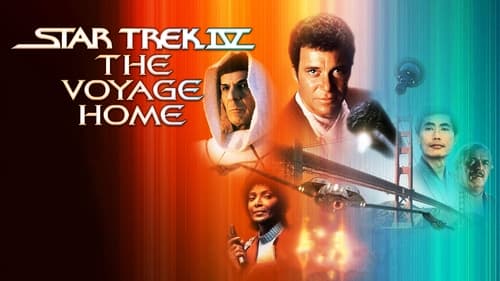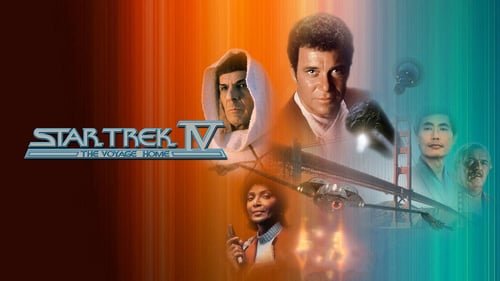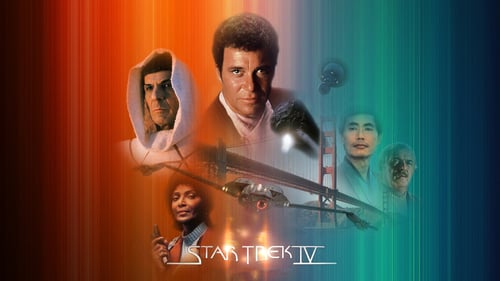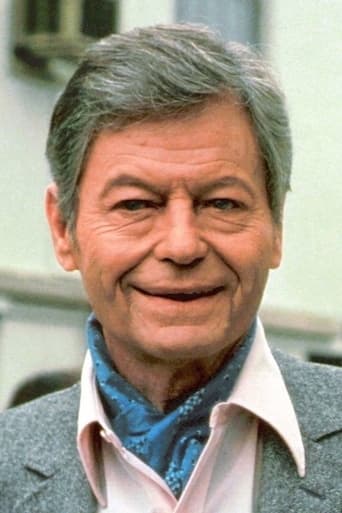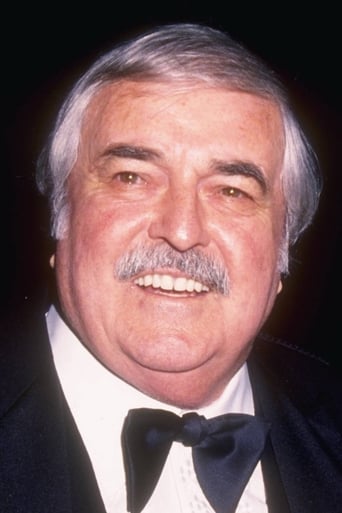Titreenp
SERIOUSLY. This is what the crap Hollywood still puts out?
Fairaher
The film makes a home in your brain and the only cure is to see it again.
Lollivan
It's the kind of movie you'll want to see a second time with someone who hasn't seen it yet, to remember what it was like to watch it for the first time.
Cassandra
Story: It's very simple but honestly that is fine.
frickabee
The stupid plot of the movie is summed up in one line by Doctor McCoy: "Who would send a probe hundreds of light years to talk to a whale?" Spock then obviously infers in an exchange of dialog that whales not only have a entire language, but if only humans were smart enough to understand it, the Earth wouldn't suffer from global warming. Only a Hollywood activist like Leonard Nimoy would write preachy crap like that. No one seems to care that there's no plausible explanation presented as to why an alien civilization hundreds of light-years away would send a probe to destroy the entire Earth because of a single species no longer making the noises that they've become accustomed to hearing, even through space from that distance. Not only that, but it would happen 200 years after the fact. If it took that long for the probe to reach the Earth, despite being sent by a much more advanced civilization, wouldn't it have been encountered in space several times during its journey, disabling ships in its wake? Based on the vast majority of reviews, the only reason people seem to like this movie is because it's a fish-out-of-water story when the 23rd century clashes with the 20th century, which no doubt creates for a lot of humorous scenes. It is for that reason alone that I can enjoy this movie much more than any of its successors in the franchise while looking past all the gaping plot holes and unanswered questions, but it's nowhere near as good as Star Trek II or even Star Trek III.
TheLittleSongbird
Having been one of the shows that was part of my childhood and growing up, the original 'Star Trek' still holds up as great and ground-breaking, even if not perfect.The feature films based on the original series has been a mixed bag. 'The Motion Picture', 'The Search for Spock' and 'Final Frontier' were disappointing, but there were also some gems and 'The Voyage Home' is one of them. The overall best of the films? Not quite, to me the biggest contender for that title is 'The Wrath of Khan'. 'The Voyage Home' is easily the most entertaining.It may not be the 'Star Trek' film if you are looking for sense, a few parts are absurd and a little all over the place, or the one to see if one is wanting traditional sci-fi spectacle (though the film is not devoid of that).Very little of that matters however, when you are so engrossed in the characters and their relationships and conflicts, the humour, captivated by the production values and basically enjoying yourself so much.'The Voyage Home' is a visual treat, the production values of the film are significantly improved generally over those for the original show. It's beautifully shot, very elaborate in setting and the special effects are pretty amazing. Leonard Rosenman proves himself a worthy successor to Jerry Goldsmith and James Horner, rousing without feeling over-scored and with sensitive moments too, if not quite as clever as Horner's scoring.Leonard Nimoy's directing is so much more relaxed here than it was in 'The Search for Spock', more expansive and far more suited to feature film. 'The Voyage Home' is full of witty humour, in how it pokes fun at the idiosyncrasies of modern California life, romantic intrigue and intelligent thought. Shatner's romance is nicely done but the comic double act with Nimoy is far more interesting.The story is enormous fun, tightly paced and the characters are true to character and fascinatingly developed. The save the whales message is not exactly a subtle one, but it is direct, makes its point and doesn't feel too preachy.William Shatner's performance here is one of his better performances in the series, not overacting as much. Nimoy demonstrates why Spock is such an interesting and impossible to forget character, and DeForest Kelley's material is some of his meatiest which he relishes. Catherine Hicks is a nice presence. The team really let their hair down and clearly have fun while still feeling like the 'Star Trek' characters we know and love.In conclusion, great, a voyage well worth taking and one of the better films based on the original series. 9/10 Bethany Cox
Martin Little
I don't think this really contains spoilers but I checked it just in case someone thinks it did.To give out my perspective I must first point out that I am a fan boy and tend to rank all things Trek a bit better than they may be in reality. That said, even my loving of Trek cannot save this tire fire of a movie. Everything about the movie is just wrong. It feels like a cheesy '70's TV movie. From the terrible TV type music to the end credits run over images of the movie you just wasted your time watching. The plot is monumentally absurd and the actors are trying way too hard to be funny. Sorry, it's not their fault. It was the writers. They wanted a light movie, which is fine. But if you want light, do light in a clever way. Like David Gerald did in his "Trouble With Tribbles" script from the TV show. Shatner showed he had great comic timing when given good material. He and Nimoy just looked sad the entire movie. Nimoy I think was going with the fish-out-of-water with the time travel idea but it just didn't work because it required our normally well educated and diplomatic crew to behave like idiots who had no idea where they were. As a result, save for a precious few moments none of the crew behaved like their normal selves. I could write essays about the pathetic and obvious plot holes (like the alien probe in the opening scene that was so advanced it turns off every device withing a certain radius, completely ignores an obvious advanced species on the planet they are heading for just so they can see why the sounds coming from that planet stopped) but that is actually not the worst part of the movie. Many Trek films have a plot hole here and there but that does not take away from the enjoyment of the story. Not so here. In the end, the movie came across as a souped up version of the Trek Episode "Let That be Your Last Battlefield" (One with the half black and half white races in the series' most obvious allegory and was actually better than this movie was) rather than an original and light hearted fun time it was obviously aiming for. Bottom line... This wasn't just a terrible movie in it's own right. It's a terrible Trek movie too.
speedy-droid
The Voyage Home (TVH) is indeed the last Star Trek movie to follow the original, traditional goal verbally stated by Gene Roddenberry back in the 1960s... To address current social and political issues using a fictional universe as a metaphor. Roddenberry wasn't specifically trying to create what most folks consider to be science fiction, he wanted to address issues like race in a way that people would understand, but that would also make it past the censors. For example, there was no way, in the 1960s, that NBC would have aired a prime- time TV show about Black/White racial strife, but they did air a Star Trek episode about people with half-black, half-white faces who hated each other so much that they genocided each other (Let That Be Your Last Battlefield). Why did they hate each other so much? Some were white on the right side and black on the left side, and the others were the opposite. Nichelle Nichols confirmed this in a TV interview when she recounted a meeting with Roddenberry and told him, "You're making morality plays." Roddenberry responded, "Shhh... Don't tell anyone."TVH hits this old-school theme right on the button by addressing a modern issue... animal species endangerment and extinction caused by man. The plot is a bit quirky and silly at times, but the core of the story is rock solid. Humans have gotten themselves into a real pickle and now face extinction themselves, all because of their ecological negligence and short-sightedness. There is also an ethical "awakening" when Spock theorizes that Humpback Whales might just be a much older and more advanced species than Humans. That question is never answered, but by the end of the movie it does seem somewhat possible that the whales are, at least in some fashion, ahead of humans on the evolutionary ladder. The whales' "God" certainly isn't afraid to show up and wipe out the whole planet Earth. It's never quite clear if the whale god is only trying to establish contact, or if it's exacting vengeance, or it's a combination of the two. It appears to me that it either doesn't recognize humanity or just completely ignores it, but it is intent upon doing some serious damage to Earth. It's certainly one of the most powerful entities ever seen in the Star Trek Universe... the only entity other than V'Ger to show utter contempt for the Human species, possibly indicating that Humans are nothing more to it than an amoeba is to Humans.The underlying message is that yes, humans do have an impact on the Earth, and their negligence can unintentionally genocide a (possibly sentient) species. In the Star Trek universe, at least, the whales understand the concepts of species and self-awareness to some degree, as Spock mentions that Gracie understood his intentions and was saddened by the treatment of her species by humans.The backstory of the crew's return and Spock's re-discovering of himself keeps the new-age Trekkies interested, which is difficult to do without some phasers and explosions. There's a nice little surprise at the end, resolving an issue that was raised over 15 years prior to the release of TVH, and it totally caught me and most other Trek fans off-guard when we first saw it. That is the resolution between Spock and Sarek, which I honestly believed would never be resolved.For the non-Trekkies, the Spock/Sarek issue is a character study of the Human species. Contrary to popular belief, Vulcans have far more powerful and often violent emotions than humans, which almost led to their self-destruction a long time ago. Vulcans are not without emotion... rather, their emotions are so passionate that they are compelled to control them and become "logical beings" for the primary purpose of preventing them from exterminating themselves. Sarek, a full Vulcan, actually has more difficulty controlling his emotions than Spock, his half-Vulcan, half-Human son. Until this film, Spock was staunchly Vulcan (or wanted to be), while Sarek has been leaving clues all along that he wanted to be an emotional being... more Human. Sarek spent a lot of time on Earth as an ambassador and married a Human female. He opposed Spock's entry into Starfleet, probably because he didn't want Spock to lose control of his Human side, which Sarek feels constant association with Humans will cause. The irony is that Sarek desperately wants his half-Human son to be Vulcan, while he, a full Vulcan, desperately wants to be Human, at least subconsciously.Neither Nimoy nor Lenard is a top-notch actor, but they've been playing (and living) these two characters for a long time, and it comes to a head in this scene near the end of TVH. If Star Trek ever had a scene approaching "fine cinema" quality, this is it. Both Nimoy and Lenard nail the scene, and their characters, perfectly.




